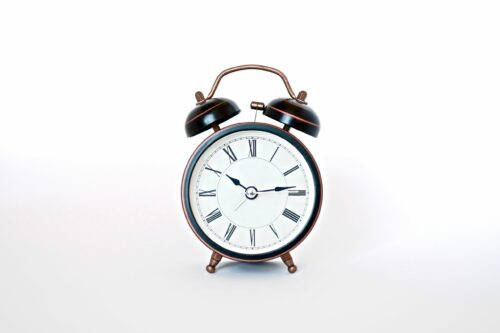Is your marriage a safe place to struggle?
Lately, I’ve been writing a lot about accountability. It’s perhaps one of the most important and yet misunderstood aspects of a freedom journey.
If you write me about your struggle with pornography and ask what you should do, the very first thing I will tell you is you need to share your story with someone (other than me). That’s not because you need a babysitter or because you need shamed. It’s because that’s the first step in tearing down shame and reestablishing community.
Pornography, by its nature, is isolating. Shame, by its nature, isolates even more and shrouds in lies. So, sharing your story is a way to tear down walls. It’s a way of taking your shame by the nape of the neck and dragging it kicking and screaming into the light. It’s a way of telling shame you aren’t listening to it anymore.
But one of the areas that seems muddied is accountability in marriage.
Years ago, I was interviewing with a team and one of the questions they asked was whether I felt a wife should tell her husband she struggled and whether she should “be accountable” to him.
“Of course,” I responded. It seemed like a no-brainer to me.
“Well, can you expound on that? Because it’s different than the advice we give the men we work with. In fact, we advise the men we work with not to be accountable to their wives, because it introduces conflict in the marriage. So, we tell the men to be accountable to another man and to fill their wives in after they are walking in some degree of freedom.”
What?!
I was completely caught off guard by this. A Christian organization was counseling men to hide things from their wives.
And I thought maybe it was just this group. But it isn’t.
So, I’m going to offer my two cents on this topic, because I really think we’ve been doing it wrong. At the same time, I’ve come to understand why historically groups have told men to keep their wives in the dark.
Also understand that I’m primarily writing to the wives, though I feel like men should follow the same guidelines. I’m a firm believer that how we’ve addressed this struggle amongst men for the past couple decades has been unhelpful, both to the men and now to women who struggle. But that’s another post for another time.
To be clear, when I’m talking about a spouse who struggles, I am talking about someone who is struggling. Not someone who couldn’t care less about their porn use and who only feels sorry about being caught. For lack of a better word, I’m talking about a repentant spouse. One who wants to be free, who wants to find healing, and wants to fight for their marriage. If the spouse involved in pornography doesn’t care then there’s a different dynamic at play.
This is addressed to women (and men) who want to be free.
My advice to wives who struggle
My advice to wives (and husbands, for that matter) who struggle with pornography is to talk to your spouse. Hiding something from your spouse is never a recipe for success. It might be a recipe for “peace” and “lack of conflict” and “keeping things simple” and “not hurting feelings” but it is not a recipe for intimacy.
I think it’s important for wives to tell their husbands because one of the things shame blatantly attacks is intimacy.
I’ve seen it time and again in emails from Christian wives who struggle. They are afraid to tell their husbands and so live with this constant shame. Even when in the marriage bed the struggling wife is thinking, “If you really knew what I was doing, you wouldn’t love me. You wouldn’t want to be sleeping with me right now.” He calls her beautiful and she thinks, “No, I’m disgusting.”
This is the nature of shame. And pornography isn’t what’s inviting shame into your bedroom, keeping it a secret is.
It’s important to remember, in this context, what accountability is.
You are not enlisting your spouse to be a babysitter.
You are not asking them to police your actions.
You are not making them responsible for your actions (“If you just slept with me more, I wouldn’t have this problem”).
And under no circumstance should you blame them for your struggle. Unless your spouse is the one literally telling you to sit down and watch porn together, they have zero responsibility for what you do. None. In fact, it might be helpful to tell your spouse that when you talk about this.
This is still your battle to fight, your self-control to learn, your choices.
You are simply pulling the shades back on a window into your life. That’s what accountability is. It’s letting someone look in and being willing to dialogue about what they see.
The problems come when we refuse to let our spouse look in or refuse to talk about what they see when we do.
That’s why the advice not to discuss this your spouse just doesn’t sit well with me. It’s saying, “This is off limits in discussion in our marriage” and nothing should be off limits in marriage.
But this is where the friction comes.
My advice to the husband whose wife struggles
Whenever I share the stage with the wife of an addict, I feel a twinge of guilt. Women share their stories of betrayal trauma and part of me struggles to wrap my mind around it. If I’m honest, I understand his struggle more than I will ever understand her pain.
When they share that their husbands say, “It has nothing to do with you,” I understand that and I believe it. When she says it feels like he’s picking other women over her and he says that’s not what’s happening, I believe him.
But I’m not the one who needs to: she is.
And that’s where the pain and difficulty comes with transparency in marriage. I acknowledge that.
I received an email from a wife who shared that she told her husband. He responded by refusing to talk to her or even sleep with her. For her, it feels like it would have been better if she never said anything. Living with secrets was better than living with deafening, intimacy-destroying silence.
We struggle to include grace in the conversation when it comes to sexual struggles. Because we cherish sex so much, an offense against the marriage bed carries a different weight of pain. And in an effort to prevent that pain, we’ve told the struggling spouse to keep their struggle under wraps.
We tell them that the best course of action is to find freedom without involving their spouse and then, maybe, letting their spouse in on the conversation after freedom is attained. This is the narrative of shame.
I have seen first hand how vehement people get when it comes to porn addicts. Years ago, when I still had comments on the blog a woman started to make an argument that if a pastor was found to use porn, it’s exactly the same as adultery and he should be removed from leadership permanently.
If that were the case, half of our churches would lose their pastors.
But it’s that kind of almost violent reaction that makes people so afraid to share when they struggle. That includes spouses.
The fatal flaw often comes when we falsely believe:
If you just loved your husband/wife enough, you wouldn’t do this anymore.
Single people fight a similar lie:
If you just loved Jesus enough, you wouldn’t do this anymore.
And when we do that, we completely disregard the deeper issues of pornography. The biochemical reaction, trauma, or dependency that may be possible. We attempt to completely bypass healing, believing that loving our spouse (or Jesus) is enough to fix everything.
It isn’t.
Keeping that in mind could be very helpful for a spouse who loves someone who struggles. Because you’re going to respond to your struggling spouse in one of two ways. Either you are on their team or you aren’t.
If your spouse struggles with porn and you view it as they are inviting sin into the marriage, then you have made your spouse the enemy. Instead of fighting for them, you fight them and view them as a threat. This will threaten intimacy.
Instead, what if we started viewing pornography as the enemy? What if we stood by our spouse in their fight?
What if we cheered their victories? Celebrated their progress? Had honest conversations about temptations, weaknesses, and damage? What if we didn’t make trust so hard to “earn” and approached this struggle as a team, instead of a suspect and a victim?
What if, instead of telling couples to hide their struggles from each other and isolate themselves “for the sake of the marriage” we encouraged them to seek help together, for the sake of the marriage?
What’s more healing? Which relationship seems more healthy:
The wife who hides her struggle from her husband, feeling she must fight this alone
or
the couple that sits across from a counselor and talks about how this struggle affects them both and brainstorms ways to fight it together?
I truly believe it we encouraged couples to tackle this together, we could see healing in so many marriages.
Which means we have to start having these conversations, as painful as they may be, with grace. We have to start inviting God into them. We have to start inviting grace and God into our marriages and let our marriages be a safe place to struggle.






